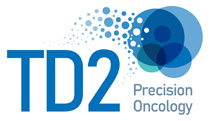Keystone Symposia

Uncovering Mechanisms of Immune-Based Therapy in Cancer and Autoimmunity (B3)
18th – 22nd February 2019
Beaver Run Resort, Breckenridge, Colorado, United States
Although FCSL will not be attending, we would like to highlight the following meeting which marks the significant progress in the field of immunology over the past two decades. Therapeutic agents such as anti-TNF, anti-CD20, anti-CTLA4, and more recently anti-PD1 have benefited countless patients.
From the meeting summary:
- There are currently numerous clinical studies testing combinations of checkpoint inhibitors with other pathway antagonists, which will begin to uncover the immune mechanisms driving the disease process.
- More than 10-20% of patients treated with anti-PD1 and/or CTLA4 later suffer from autoimmunity (e.g., anti-PD1 treatment is linked to Type 1 diabetes and anti-CTLA-4 linked to IBD).
- The response rate to cancer treatment is greater in patients with autoimmune predisposition; therefore, the autoimmune side effect is in part associated with patient genetics.
- Conference topics will include discussions of combination immunotherapies, the genetics of patient response, and strategies to reprogram adaptive and innate immunity, which are key to harnessing the immune system to fight cancer and autoimmune diseases. The symposium will end with a special closing lecture on the future of immunotherapy.
FCSL routinely evaluates the effect of immunotherapies on immune cells from clinical and non-clinical studies. With up to 10-color flow cytometry capabilities, we can monitor immune cells, their activation and functional status, (internal and/or external signaling), and have the flexibility to include proprietary antibodies and design custom flow panels for our clients.
For more information: http://www.keystonesymposia.org/index.cfm?e=web.Meeting.Program&meetingid=1620
Sponsored by AbbVie Inc., BioLegend, Inc., Compass Therapeutics, EMD Serono Research and Development Institute, Inc., Genentech, Inc., Incyte Corporation, MacroGenics, Inc., Merck & Co., Inc., MorphoSys AG, Pfizer Inc., Roche, Surface Oncology, Takeda Pharmaceutical Company Limited and Tessa Therapeutics Ltd.

